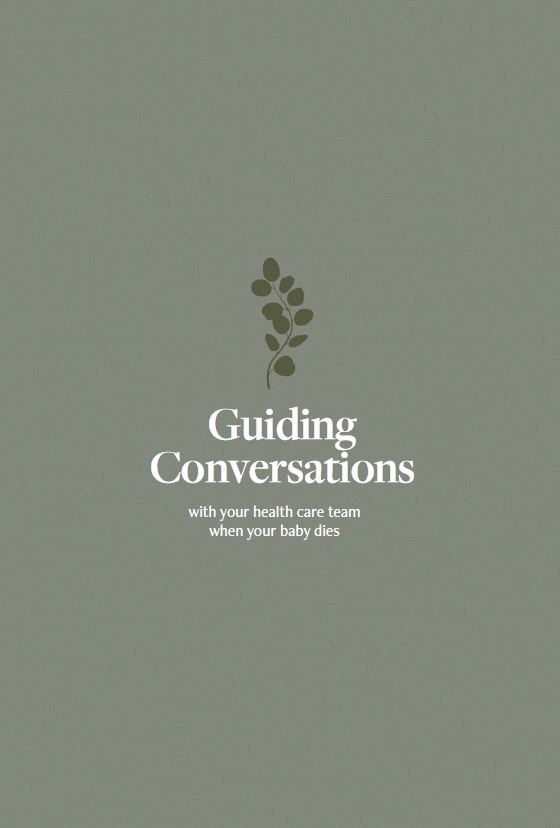Telling others
The effort to talk might be difficult and tiring especially as you recover from the birth and are in the early stages of grief.
There is no right or wrong to who you tell, how you tell them or when you tell them.
Our community has told us that they have all approached telling family and friends in different ways including:
- Speaking to parents, siblings and close friends and telling each one individually.
- Asking their closest loved ones to help inform others and pass on any considerations.
- Writing a letter and sharing the letter with their loved ones.
- Sharing their precious loss on their social media channels.
“Dearest family and friends,
I’m writing this letter today not only as a form of personal therapy, but also to express to you the story of our recent heartbreak.
I understand many of you will want to know what’s happened to Dave and I over the past few weeks. Hopefully you’ll be able to appreciate that It’s a lot easier for us to share our story with you through this letter rather than retelling it to you all individually …”
– Samantha O’Callaghan, mother to Jerry. Read Samantha’s story here.
Send a personalised Stillbirth Foundation Australia baby registry image tile
To help inform your family and friends, we invite you to register your precious baby’s name and birth date on our community baby registry.
You can personalise with a message and download an image to share with your loved ones.
Our registry helps to open the door for greater connection, knowledge, awareness and education around stillbirth in Australia.
The choice is deeply personal and there is no rush. Do what feels right for you and what you feel capable of at the time.
Telling your children about their siblings stillbirth
Our community has told us that their stillborn baby’s siblings or subsequent siblings have a deep understanding and special attachment to their stillborn siblings.
With months of planning, curiosity and heightened anticipation, many bereaved parents have retold the anxiety or dread as they looked into their children’s eyes and having to tell them their little baby brother or sister will not be coming home.
In many situations, children, especially toddlers or primary school aged children, have been empathetic, receptive and have provided their parents with much needed love and support during the early stages of grief.
“…Coming home, this was going to be the second hardest thing to do. We would have to face reality and explain to our 3-year-old daughter that her baby brother had died and there was no longer a baby in mummy’s tummy. This has since taught me the resilience that children have. Life is black or white and you’re either right or wrong. Our daughter was amazing at her understanding and acceptance of the news we had told her. Her compassion was incredible, she knew we were devastated and would bathe us with love and cuddles. I have learnt so much about my daughter and have a much deeper respect for her at such a young age.”
– Cara Cummings, mother to Maurice Stanley Cummings. Read Cara’s story here.
Adapted to suit their age, tell your children honestly and openly to help them understand, provide a safe space to grieve and involve them, where appropriate, in planning, rituals or creating memories.
Their hearts will be experiencing a lot of new emotions and possibly experiencing sadness or grief for the first time, so it is important to advise family, teachers or carers about how you have explained the loss of your baby and any considerations, for example, referring to your baby ‘in the stars’, ‘in heaven’ or is now ‘an angel’.
Talking to your children in simple language will also help them to communicate with children their own age, cousins or close friends.
To help, please find books and resources that have helped our bereaved community to support and talk to their include:
“Our daughter Freya is very perceptive and she is very verbal. She has always known about Quinn and as she has developed, she talks about him, asks about him and even plays pretend games that involve him. Here are a few examples of how she has talked about him.
We get questions:
“Why did he die?”
“Did I ever meet him?”
“Did he talk before he died?”
“Are you sad that I didn’t get to meet him?”
– John Denham, Kristy Putnam and Freya, family to Quinn. Read their story here.
